Table of Contents
A first impression, formed within seconds of meeting someone, is an initial judgment based on appearance, body language, etc. These impressions can significantly impact mental health, influencing self-esteem and contributing to conditions like social anxiety.
What Does First Impression Mean?
First impressions are the initial judgments and evaluations [mfn] Zebrowitz L. A. (2017). First Impressions From Faces. Current directions in psychological science, 26(3), 237–242. https://doi.org/10.1177/0963721416683996 [/mfn] we make about other people upon first meeting them. These impressions can be formed within seconds of meeting someone and are based on a variety of factors such as appearance, body language, tone of voice, and other non-verbal cues.
In social psychology, first impression plays a significant role in how we perceive and interact with others. These impressions are often influenced by schemas, mental frameworks that help us organize and interpret information. These schemas can lead to stereotypes and biases that impact how we judge others based on limited information.
From a mental health perspective, first impressions can be particularly important. They can affect our self-esteem and self-perception, especially if we feel we are being judged negatively. Repeated negative first impressions can lead to social anxiety, low self-confidence, and even depression in some cases.
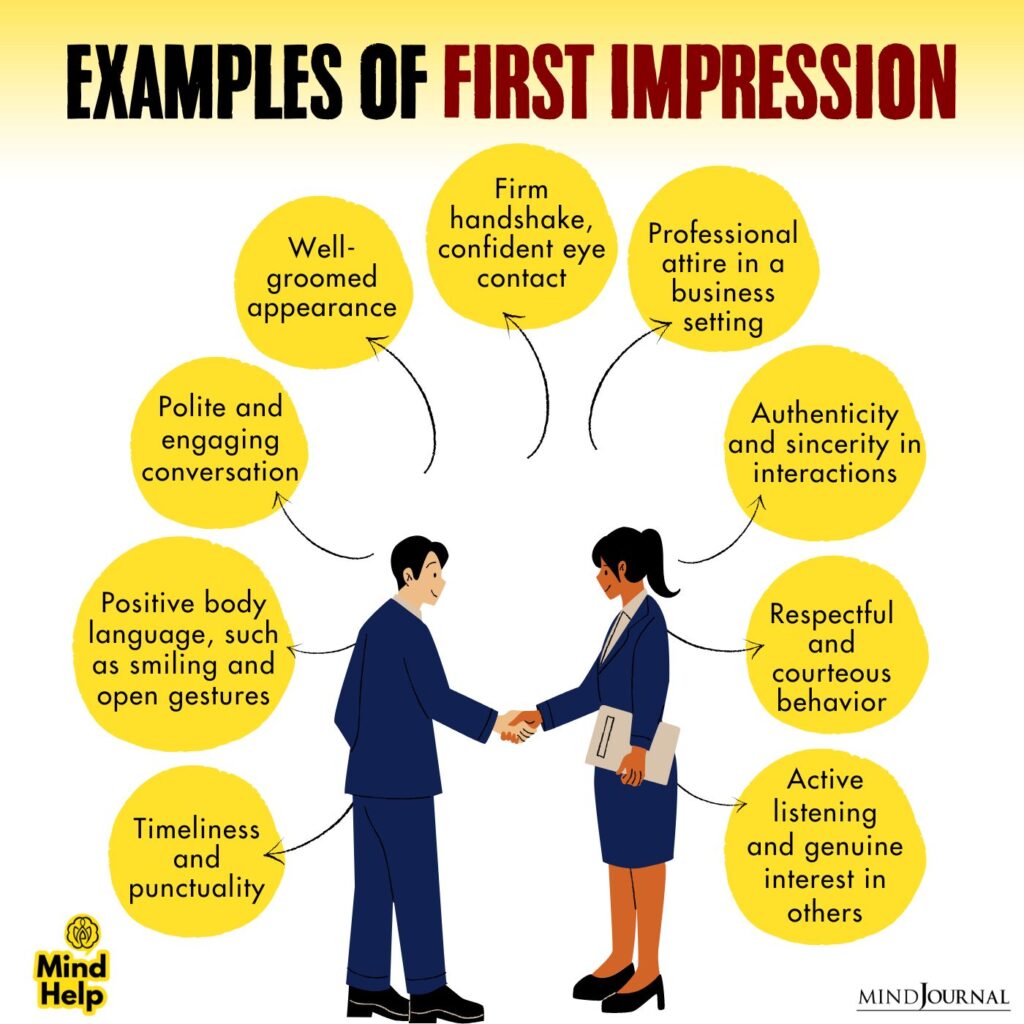
How Is A First Impression Formed?
Factors [mfn] Gilron, R., & Gutchess, A. H. (2012). Remembering first impressions: effects of intentionality and diagnosticity on subsequent memory. Cognitive, affective & behavioral neuroscience, 12(1), 85–98. https://doi.org/10.3758/s13415-011-0074-6 [/mfn] affecting any first impression include:
- Appearance
- Non-verbal cues
- Verbal communication
- Behavior
- Stereotypes/biases
- Context
- Similarity
- Emotional state
- Gestures
- Smell
- Listening skills
- Eye gaze
- Cultural norms
- Previous experiences
- Intuition
- Impression management
- Time constraints
Read More About Stereotypes Here
Why Does First Impression Matter In Daily Life?
First impression matters significantly because it leads to instant judgments [mfn] Tsankova, E., & Tair, E. (2021). Meta-Accuracy of Very First Impressions: A Mini Review. Frontiers in psychology, 12, 736534. https://doi.org/10.3389/fpsyg.2021.736534 [/mfn] that shape future interactions. They convey our competence and credibility, laying the groundwork for relationships and opening doors to opportunities. Positive first impressions boost confidence and foster trust, impacting how we’re perceived socially and professionally. They’re crucial for job interviews, career advancement, and avoiding misunderstandings or conflicts.
In fast-paced environments, quick impressions aid decision-making efficiency and can have lasting effects on how others treat us. Moreover, they can evoke emotions, influence opinion formation, and even impact our mental health and self-esteem. Negative first impressions are challenging to reverse and can have a ripple effect through our social circles. Ultimately, first impression is pivotal in establishing personal and professional brands, shaping how we adapt our behavior and how others perceive our character and leadership qualities.
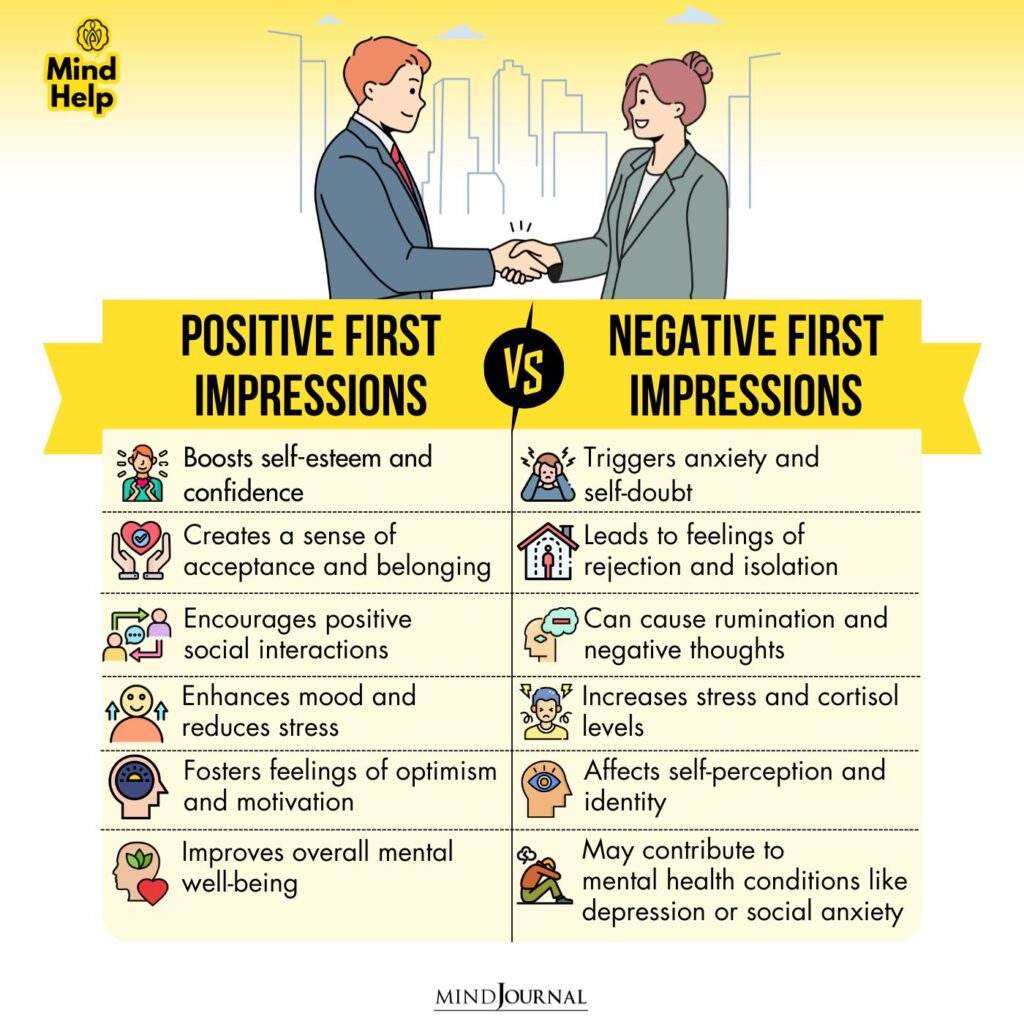
How Does First Impression Impact Mental Health?
Decision-making is heavily influenced by biases and stereotypes [mfn] Swider, B. W., Harris, T. B., & Gong, Q. (2022). First impression effects in organizational psychology. The Journal of applied psychology, 107(3), 346–369. https://doi.org/10.1037/apl0000921 [/mfn] , shaping our behavior to conform to perceived expectations. These initial impressions, whether positive or negative, can have lasting effects on our self-esteem and identity. Negative thoughts stemming from biases often lead to overthinking, stress, and social anxiety, impacting our ability to form healthy relationships and contributing to feelings of isolation.
Read More About Decision-making Here
Emotions play a significant role, evoking anxiety, excitement, or discomfort when faced with making judgments or being judged. These first impressions, whether accurate or not, can shape our behavior to match others’ beliefs. Rejection sensitivity stemming from these initial impressions can worsen symptoms of mental health disorders like depression and social anxiety, highlighting the importance of building resilience and developing healthy coping strategies.
How To Make A Good First Impression: Tips And Strategies
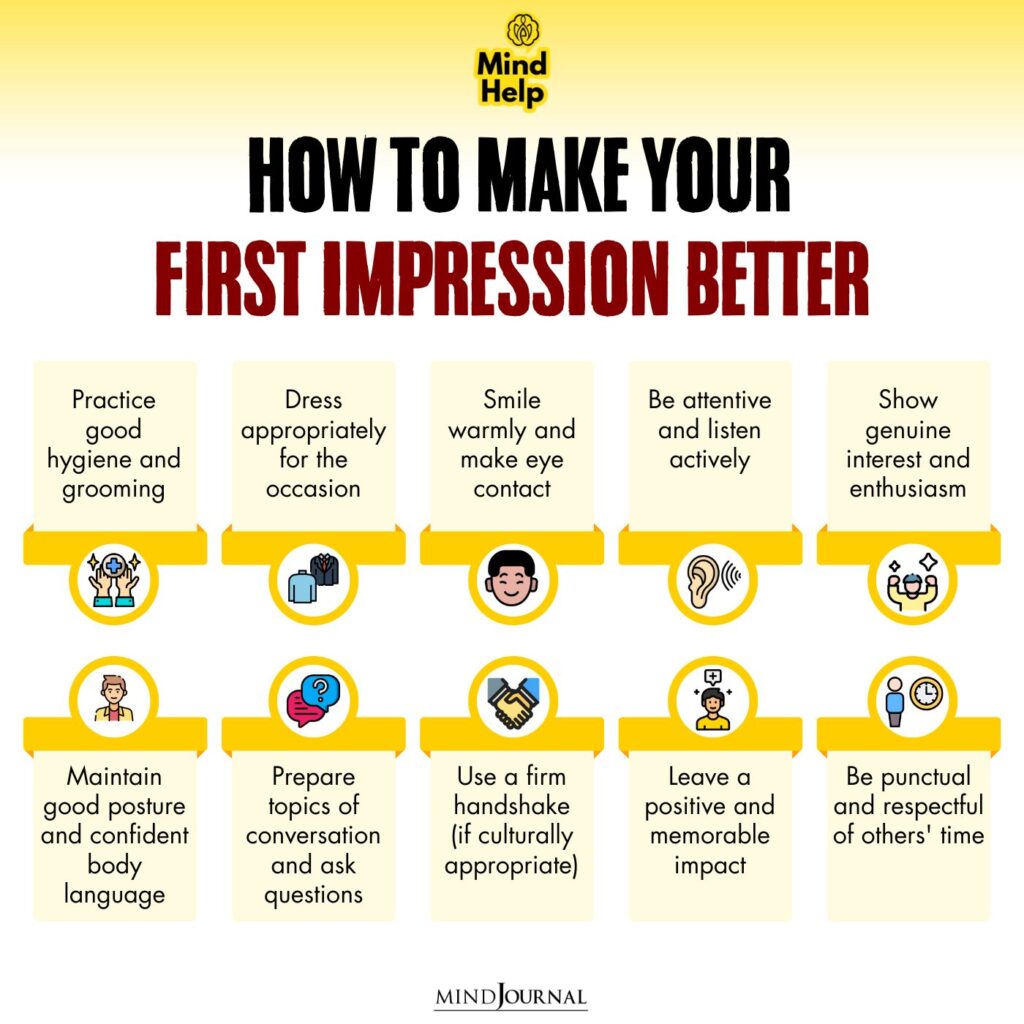
Consider the following measures [mfn] Bar, M., Neta, M., & Linz, H. (2006). Very first impressions. Emotion (Washington, D.C.), 6(2), 269–278. https://doi.org/10.1037/1528-3542.6.2.269 [/mfn] on how to make a good first impression:
- Dress appropriately for the occasion
- Maintain good posture and body language
- Smile and make eye contact
- Show genuine interest in the other person
- Use positive and confident language
- Be attentive and listen actively
- Offer a firm handshake
- Remember and use the person’s name
- Be punctual and respectful of their time
- Follow up with a thank-you note or message
Read More About Body Language Here
Takeaway
Any first impression is crucial as it often shapes subsequent interactions and perceptions. They underscore the importance of making a positive initial impact, as they can influence long-term relationships and mental health outcomes.
At A Glance
- A first impression is an immediate judgment based on appearance, body language, and more.
- It is influenced by schemas and biases.
- It impacts self-esteem and mental health.
- It is very crucial in job interviews, relationships, and decision-making processes.
- Positive first impressions boost confidence and trust, while negatives can be hard to reverse.
- Strategies on how to make a good first impression involve dressing appropriately, maintaining good posture, active listening, etc.
Frequently Asked Questions (FAQs)
1. What Are The Rules Of First Impression?
The rules of first impression suggest that initial judgments are often based on limited information.
2. How Do First Impressions Affect Our Behavior?
First impressions can significantly influence our behavior by shaping our attitudes and interactions with others.
3. Can First Impressions Change?
Yes, first impressions can change over time as we gather more information and experiences about a person.
4. How Do You Read Someone From A First Impression?
To read someone from a first impression, observe their body language, facial expressions, and tone of voice for clues about their personality and emotions.


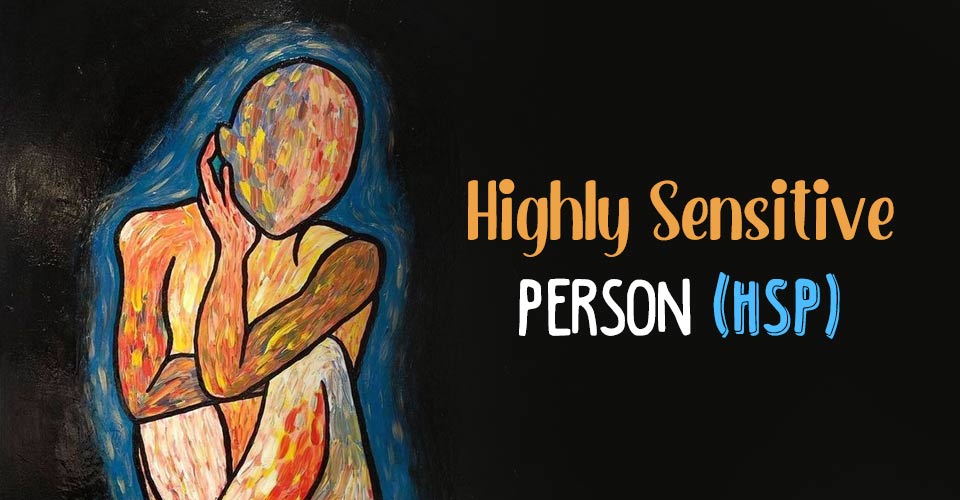





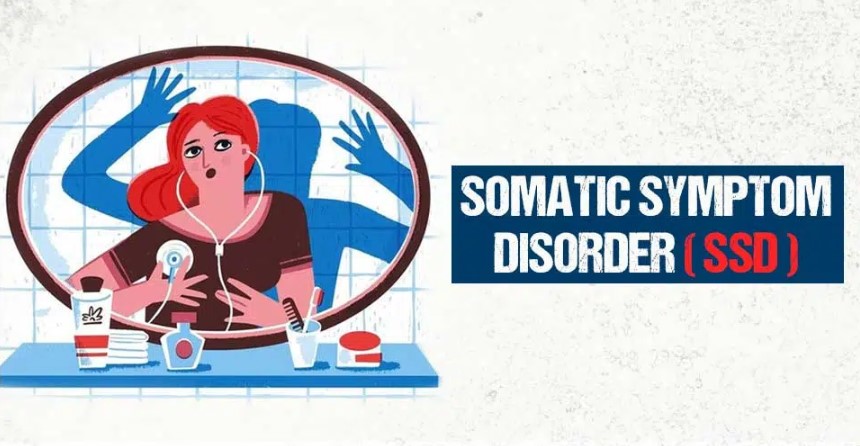

Leave a Reply